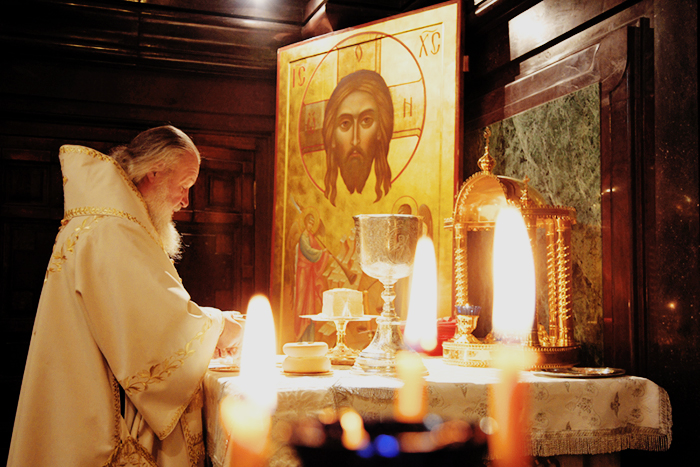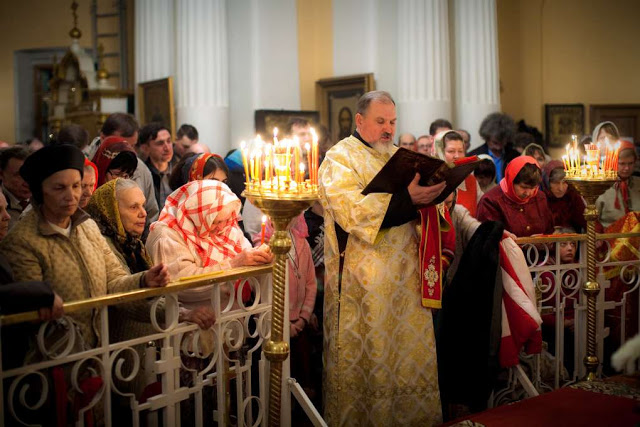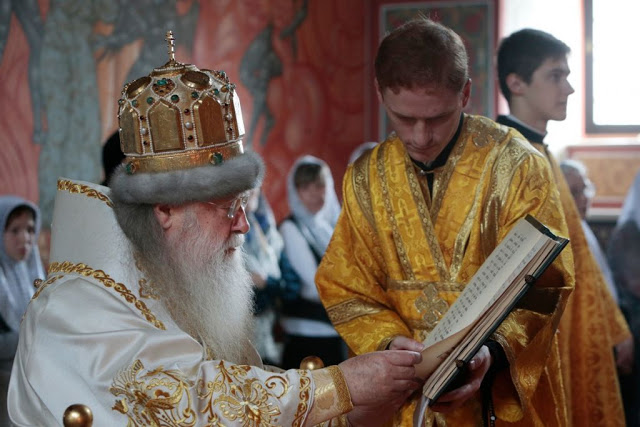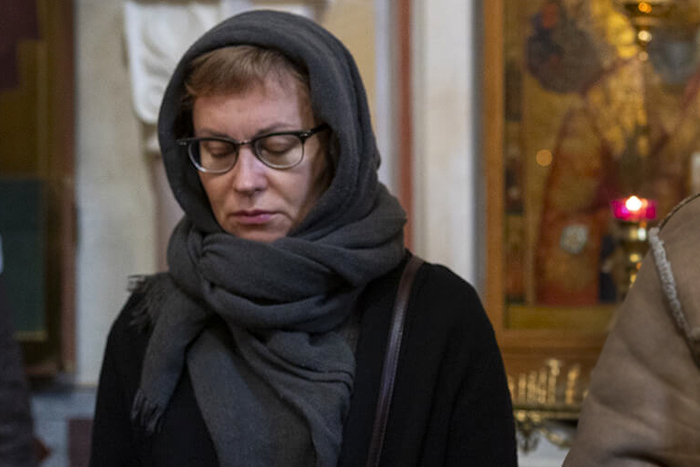
The priest can serve Matins and Vespers without readers and singers, but only when the priest of the house or church is found alone, without anyone else coming and wishing to participate in prayer. They inform them about the lives of many saints pleasing to God that being in the desert or a recluse, they sang Vespers, Compline, Matins, the Hours and so forth by themselves, and even this was delivered to them as a special merit before God. Also in the moral sense it is possible to tell about reading the named services by priests without churchmen. For thus the priest himself personally should find everything, prescribed by the Ustav [Typikon], – both the Kathisma and the stichera, the canons and so forth, – not how it happens, when the priest serves with churchmen who reads the one, and the priest the other.
One priest alone cannot and should not do thus, – to say the Litanies; for in them it directly says: “Let us pray to the Lord”, or: “Again let us pray”, i.e. the priest or a deacon invites the forthcoming to take part in the general prayer, for what they, i.e. those who come, or instead of their choir, should also respond: “Lord, have mercy”. When the priest reads this or that service alone, at home, even if it was in church he has nobody to invite to participate in the prayer with himself, there is nobody to respond to his invitation, but that is why even the litany is composed as an essential common part of the Divine service, it should be dropped in that case. If there are people together in church with the priest, wishing to listen to this or that service as the common Divine service, then, it should be understood by this, that he should serve together with the psalm reader, properly, according to the church Ustav [Typikon].

For without this very service this will have character of private instead of public prayer, and consequently cannot have that meaning it should have for those present, by the established order and custom of the church. Especially, of course, not otherwise, as soon as there is a psalm reader, the priest can and should serve a divine liturgy because 1) in itself it is one of the greatest public Divine services of our Church as its name is “public business” also shows by its name, “public service”, and 2) in the Liturgy it is impossible to pass any word, and there, as it is known, it relies not only on Litanies, but on many other exclamations, to which it cannot be differently said, by the response of the singer, in the kind, e.g., of an exclamation: “Let us love one another, that with one mind we may confess”; – the answer: “Father, Son and Holy Spirit…”, or: “Let us stand aright, Let us stand with fear”, – the answer: “A mercy of peace! A sacrifice of praise!” and so forth. We already do not say that since ancient times the established order of our Orthodox Church the liturgy should always be accompanied by singing… Who begins to sing without the singer? (Rukovodstvo dlia Selskikh Pastyrei [Manual for Village Pastors] 1885, 35; Voronezhskiia Eparkh. ved. [Voronezh Diocesan News] 1887, 20). In the Polotsk diocese it has been made an indispensable duty of the church clergy to attend to the training of pupils in the local schools of boys to read and sing in the kliros so that the latter, in case of illness or absence of the psalm reader, could fulfill for them their obligation of completing the Divine services (Polotskiia Eparkh. ved. [Polotsk Diocesan News] 1879, 11).
Translated by Archpriest Eugene D. Tarris



